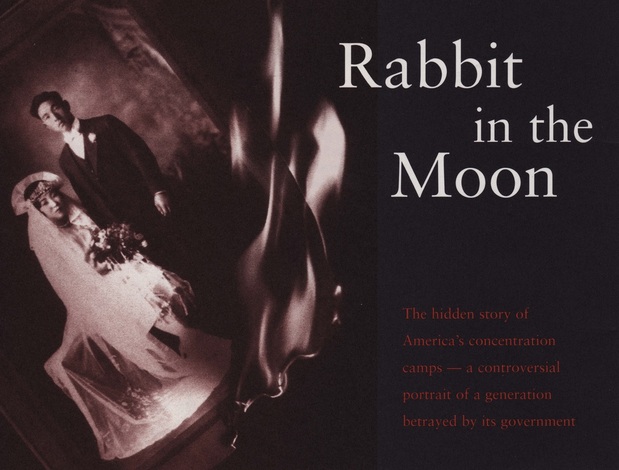An award winning film by Emiko Omori
85 minutes
About the Film
Emiko Omori's Rabbit in the Moon is the latest and perhaps the most substantial cinematic contribution to the reevaluation of the Japanese American experience during the World War II years. Produced at nearly a sixty-year remove from the forced exile of 120,000 Americans of Japanese descent from their homes and businesses to isolated, makeshift camps, it offers both first hand witnessing of and critical commentary on the tremendous upheavals caused by the camp experience. It is a film of lamentation and loss. We learn how a once-thriving community was peremptorily uprooted, its identity savaged, its cohesion shattered. The film continually moves between the tracing of personal memory and the construction of a much-needed revision of the historical record. We learn about the deep and lasting rifts that developed within the Japanese [American] community: some sought American identity at all costs while others refused to cooperate with a government that, having robbed them of their rights, still demanded the oath of loyalty. We are brought to a profound understanding of the motives and sacrifices of the resisting minority.
Rabbit in the Moon is also an artistic achievement. The film sustains its reflections on a troubled past through calm restraint. The fluidity of camera, the care of composition, the simplicity of musical motifs reinforce Omori's efforts to restore the terrible losses of earlier times. It is an acceptance, however, that never sacrifices the lucidity of historical understanding. It is for this reason that the film will prove important to a great variety of audiences.
-Michael Renov, Prof. of Critical Studies, USC School of Cinema-Television
Rabbit in the Moon is also an artistic achievement. The film sustains its reflections on a troubled past through calm restraint. The fluidity of camera, the care of composition, the simplicity of musical motifs reinforce Omori's efforts to restore the terrible losses of earlier times. It is an acceptance, however, that never sacrifices the lucidity of historical understanding. It is for this reason that the film will prove important to a great variety of audiences.
-Michael Renov, Prof. of Critical Studies, USC School of Cinema-Television
Chizuko Omori is available to speak to groups about the incarceration camp experience. Please contact her at (415)-601-9606 for more information.


